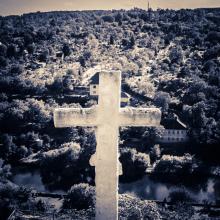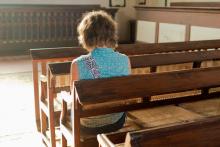Philanthropy

“And what does the Lord require of you? To act justly and to love mercy and to walk humbly with your God.” [Micah 6:8]
Too often, perversions of our world’s religious traditions make the daily news for their violence, corruption, greed, and prejudice. Meanwhile, authentic representatives of those traditions are often busy doing good — good that goes largely unnoticed. That’s why I’m glad that a diverse group of religious leaders are sharing about seven ways authentic people of faith can work together to make a better world.
I served as a progressive evangelical pastor for 24 years, and during those years, I saw the evangelical movement struggling with its identity. The best versions of evangelicalism, whether they were labeled conservative or progressive, always took seriously passages like Matthew 25, where Jesus said, “For I was hungry and you gave me food, I was thirsty and you gave me drink.” Those verses continue to inspire evangelicals of all persuasions to engage in life-giving mission — and in particular, to engage constructively in the world in seven positive, reconciling, and healing ways.
If you invest just a few minutes over the next seven days thinking and speaking up about these seven ways to participate in our world, I believe by week’s end you will be moved to action and in it find a richer, more faithful life:

THIS IS NOT a column full of hand-wringing about the moral decay of U.S. society. Nor is it about my concern for the souls of my fellow citizens who are atheists, agnostics, or some other stripe of nonbeliever. I am worried about the growing number of religious “nones” in the United States, but not for those two reasons.
Let me be clear about something before continuing: Many of the people I love and admire most are religious “nones”—those who indicate “none of the above” on religious preference surveys. They include people of high intellect, great sensitivity, and deep character. In fact, many of them could give lessons in such areas to some of the religious people I know.
What they do not do is build hospitals, schools, colleges, or large social service agencies. Such institutions (when not built by the government) have generally been founded and supported by religious communities in the United States. This is not so much because religious people are always better human beings; it’s because religious communities value and organize such work at significant scale.
Religious communities play a profound role in U.S. civil society. About one out of every six patients in the U.S. is treated by Catholic hospitals. Most, if not all, have some sort of explicit commitment to serving the poor because of their faith identity. There are nearly 7,000 Catholic grade schools and high schools in the U.S., and more than 260 colleges. This is to say nothing of the refugee resettlement, the addictions counseling, or the services for homeless men and battered women provided by Catholic social service agencies.
Actor Paul Newman, who died in September, founded the only global forum of business CEOs focused on increasing corporate philanthropy.